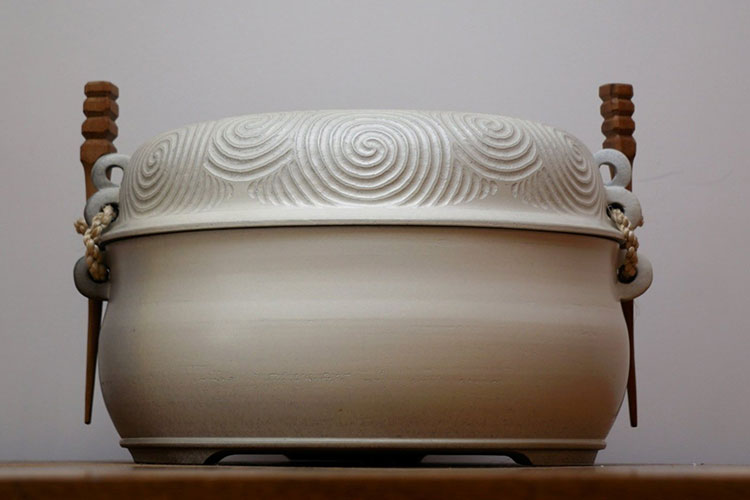Tutakangahau (Tu) Williams, successful recipient of the Dr Morehu McDonald Residency, credits his mother for helping him achieve this milestone.
From a young age she would give him books as Christmas and birthday gifts rather than the latest toys, sparking his passion for reading and writing.
‘My mother was huge on reading. She was the one in the family that gave my cousins and I books. We wanted the GI Joes and Transformers, but we got books! It’s paid off because I really enjoy reading and writing. I think it's my purpose to be a writer researcher. It's what I love.”
Tu was awarded the new Te Manawahoukura residency in July, which was established in honour of the late Dr Morehu McDonald. Dr McDonald was one of the first kaimahi of Te Wānanga o Aotearoa to be involved in what would become Te Manawahoukura, and is celebrated for his commitment to advancing kaupapa Māori, Rangahau, and te ao Māori for the betterment of te iwi Māori.
Dr Morehu McDonald, seated second from left, attending a Nga Tamatoa/Polynesian Panther protest about the closure of a nearby dance hall, 1972
Te Manawahoukura, Rangahau centre of Te Wānanga o Aotearoa, will support Tu as he joins them for 3 months to undertake his Rangahau project, which will contribute to advancing kaupapa Māori scholarships with a particular focus on Tāne Māori.
“I’m eager to pick the brains of all the awesome minds in Te Manawahoukura and use this as an opportunity to get clarity on what I want to pursue for my PhD when the time comes.”
Knowing that he wanted to complete his PhD, Tu applied for the residency to help him ‘Rangahau the Rangahau’ and explore how he will tackle the requirements of his PhD.
He hopes to start his PhD in 2026 and is looking to focus on defining Māori masculinities.
“The kaupapa of Rangahau is big to me. I'm also really interested in Māori constructs. Our notions of Māori masculinity, Māori mens health, Indigenous and Māori leadership models, Ako, and tertiary education.”
Tu developed an interest for Rangahau in 2012 when he applied for a contestable fund, despite not knowing what Rangahau was.
He was playing rugby at the time and recognised that Māori rugby clubs are special places for our communities. He decided that would be the kaupapa for him to Rangahau.
“I started small, just 3 clubs, within the Waiariki rohe. We published a little pukapuka out of it. We interviewed quite a few key people at the clubs and then presented at symposiums.”
For over 20 years and with several job titles under his belt, Tu has worked at Te Wānanga o Aotearoa, most recently in a Lead Educational Delivery role, supporting managers and kaiako across Waiariki.
His method of following a passion has worked well for him, and he encourages others to follow.
“Follow it if it's your passion. Ideally something that aligns with what you're really passionate about. You can always start small.”
Eventually, Tu would like to become a kairangahau, researching and writing. For now, this residency is his chance to test his path ahead.





































